Russia pushing ‘at all costs’ to grab territory in Ukraine before fresh US weapons arrive
Analysts and officials tell The Independent that the Kremlin wants a military victory to tout before its artillery advantage diminishes

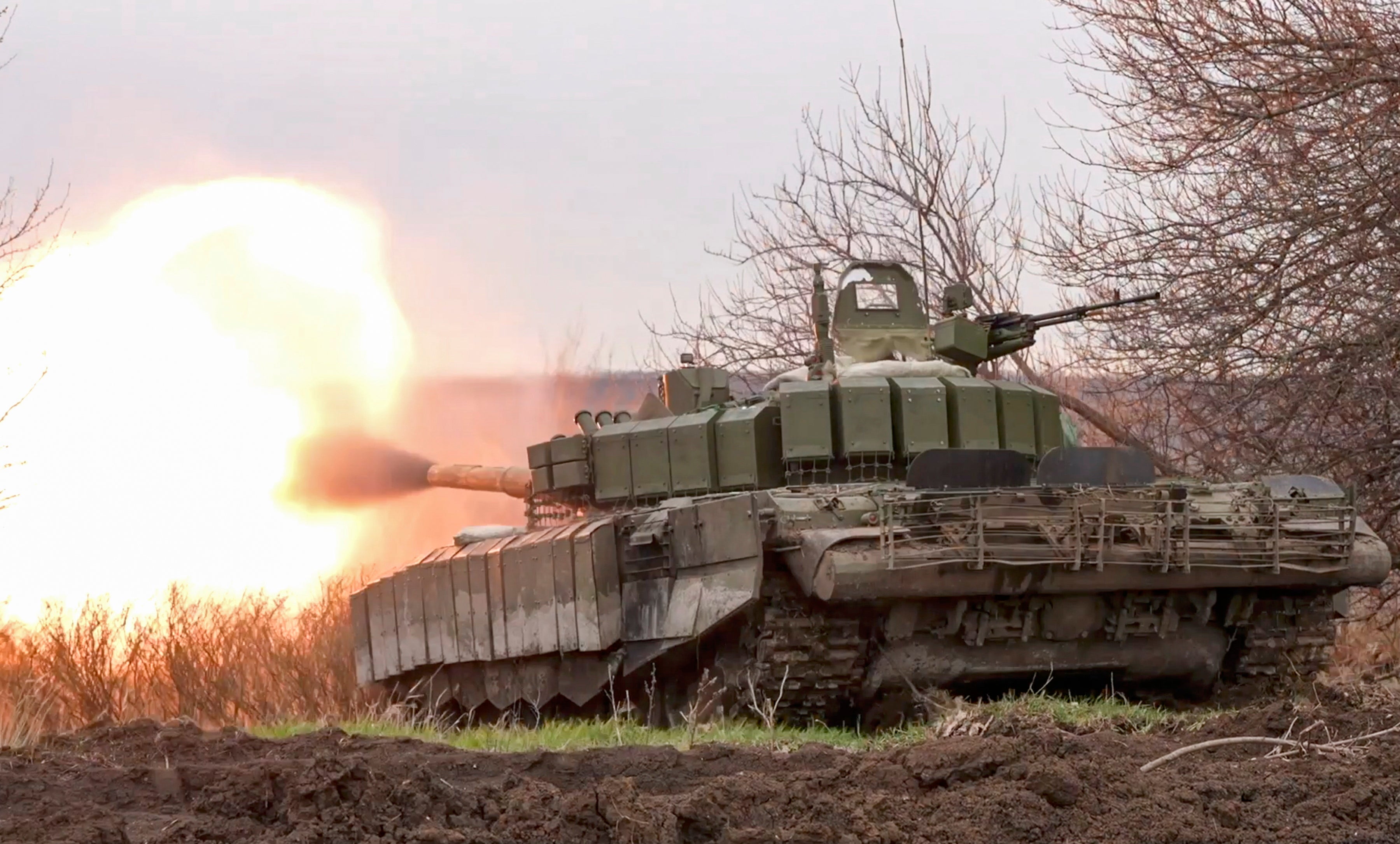
Your support helps us to tell the story
From reproductive rights to climate change to Big Tech, The Independent is on the ground when the story is developing. Whether it's investigating the financials of Elon Musk's pro-Trump PAC or producing our latest documentary, 'The A Word', which shines a light on the American women fighting for reproductive rights, we know how important it is to parse out the facts from the messaging.
At such a critical moment in US history, we need reporters on the ground. Your donation allows us to keep sending journalists to speak to both sides of the story.
The Independent is trusted by Americans across the entire political spectrum. And unlike many other quality news outlets, we choose not to lock Americans out of our reporting and analysis with paywalls. We believe quality journalism should be available to everyone, paid for by those who can afford it.
Your support makes all the difference.Russian forces are pushing “at all costs” to try to “capture as much land as they can” in Ukraine before vital US military aid gets into the hands of Kyiv’s troops, officials and analysts have warned.
While the first tranches of the $61bn (£48bn) US package, which includes everything from long-range missiles to armoured vehicles and vital artillery, started to arrive this week, it could take weeks or potentially months for significant portions of the aid to arrive.
Russian forces, meanwhile, are taking full advantage of an artillery and manpower edge on the front line, and they are hurrying to encircle swathes of Ukrainian-held territory in the eastern region of Donetsk.
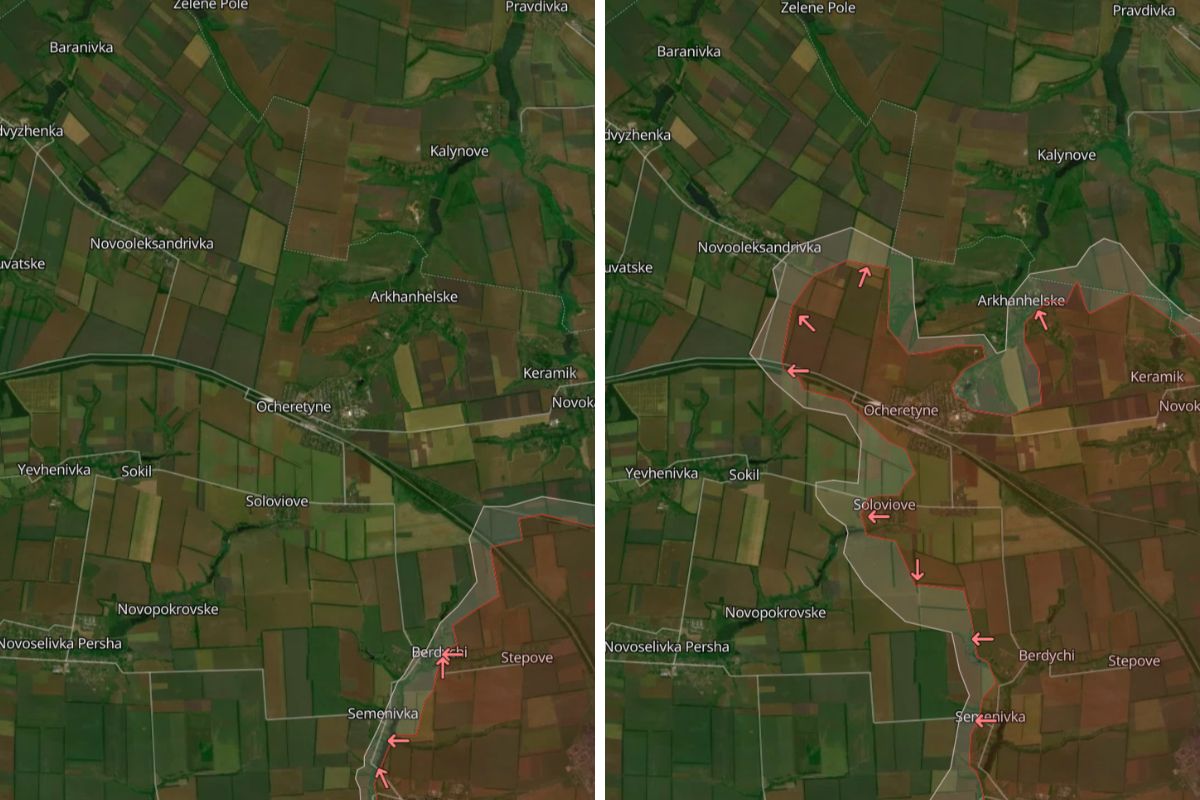
“The Kremlin is rushing,” says Pavel Luzin, who focuses on Russia’s armed forces for the US-based think tank the Jamestown Foundation. “They are trying to improve their combat positions at any cost in order to force Ukraine to negotiate a ceasefire.”
Having captured the city of Avdiivka in February, in the past few weeks Russian forces have taken 25 sq km (9.65 square miles) of territory in and around a town called Ocheretyne in Donetsk.
Located roughly 12 miles north of Avdiivka, it is the latest victim of Russia’s concerted push in that direction, with Moscow’s troops having taken 11 settlements overall. Footage of the area shows a countryside wrecked by artillery shelling, while reports from Western intelligence communities estimate that Russia has lost tens of thousands of soldiers during the push.
The capture of Avdiivka came before a sham Russian election in March that further solidified Vladimir Putin’s iron grip on power. For Taras Zhovtenko, a Ukrainian war analyst and adviser to his country’s foreign ministry, this latest advance is an extension of that operation.
“Before the Russian presidential elections, it was clear that taking further territory was a political assignment handed down from the top to Russian soldiers,” he says. “Right now, we are seeing the follow-up of this political assignment.”
“They are trying to capture as much land as they can before the US military aid arrives,” he adds.
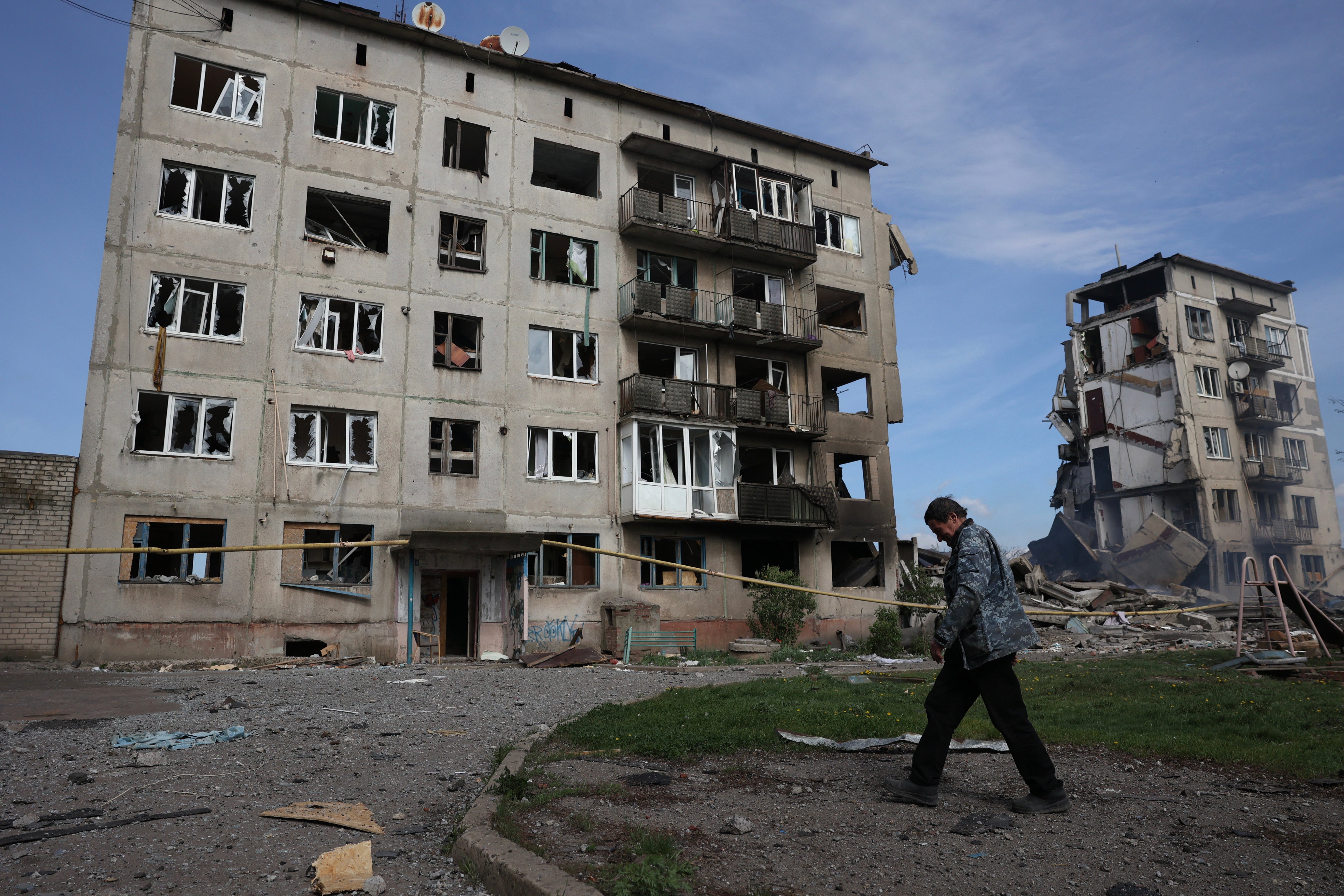
About an hour’s drive north of Avdiivka, Russian forces are also pushing hard on the southern outskirts of Chasiv Yar, a small Ukrainian city with a pre-war population of about 12,000. Only a few hundred civilians now remain.
It is close to Bakhmut, the town that Russia took last May after months of bloody fighting. Bakhmut had gained a significance far beyond its size due to the ferocity of the battle.
“Bakhmut did not have genuine strategic importance,” says Michael Clarke, a visiting professor in war studies at King’s College London. “But Chasiv Yar does.”
Located on high ground, the city offers a “natural route north”, one that could allow Russian forces to attack the city of Kramatorsk or further west towards Dnipro.
“It’s also the natural defence line before Kostiantynivka to the southwest, one of the big cities in the Donbas,” says Clarke. “If the Russians can begin a movement of real momentum, they will look to roll up a series of victories from Chasiv Yar to Kostiantynivka, Pokrovsk, then Kramatorsk and Slovyansk. That would give them the Donbas region.”
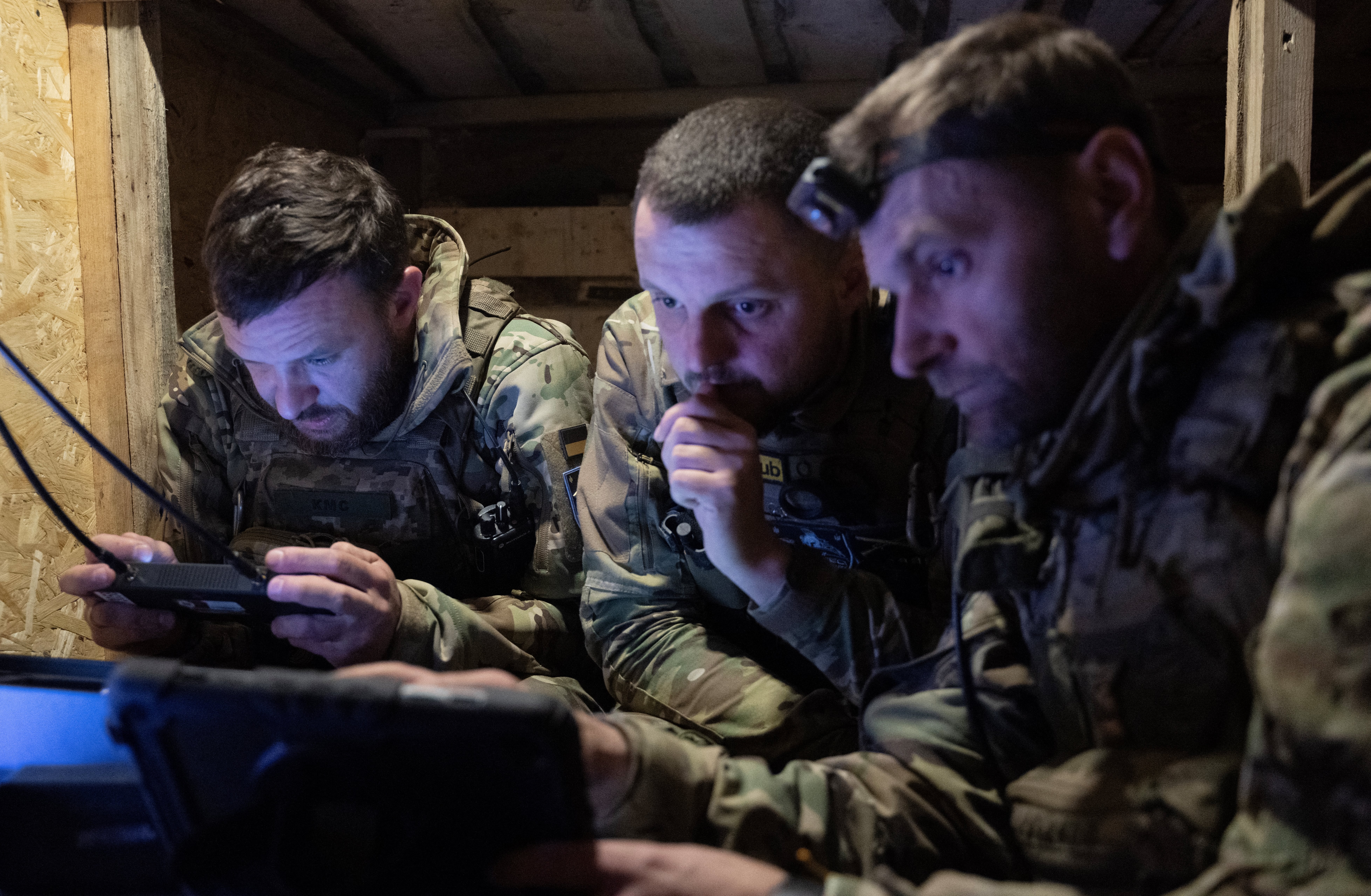
Suffering roughly a seven-to-one artillery disadvantage, Ukrainian forces are struggling to hold on to Chasiv Yar. They have used a canal that runs along the western and southern sides of the city as a natural defence, but Russian forces keep amassing in that direction. A local military spokesperson says upwards of 25,000 have been relocated to the fight.
“The concentration of superior Russian forces in the area raises significant concerns,” writes Frontline Insight, a Ukrainian war tracker with close ties to the military. “Without effective stabilisation measures, Russian forces will leverage their numerical advantage to breach the canal and establish a bridgehead in the forest on the western side.”
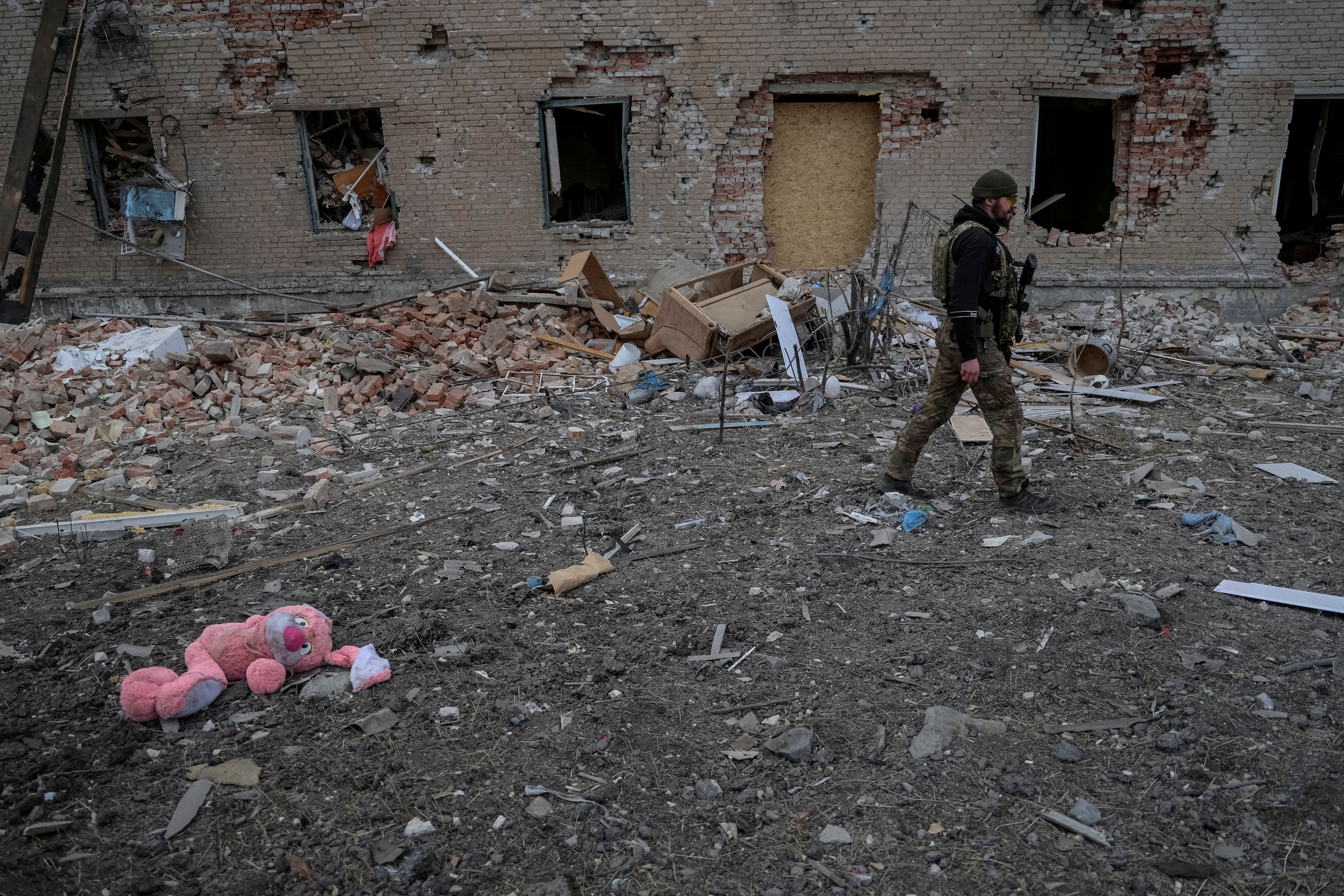
In an interview with The Economist, the deputy head of Ukraine’s military agency, Major General Vadym Skibitsky, suggested it was probably a matter of time before Chasiv Yar fell to Russia.
The prevailing sentiment among Ukrainian military officials and analysts has been that Russia’s recent gains have been confined to small cities and towns, and that a more significant advance is unlikely. But if such an advance happens, it is most likely to come from Chasiv Yar.
Ukrainian officials believe that Putin, vicariously through his generals, has ordered his forces to take the city before Victory Day on 9 May, which is a celebration of Soviet victories in the Second World War. Or at least before Putin’s visit to China to see its president Xi Jinping, Russia’s most powerful ally, the following week.
Whether that can act as a springboard for Kremlin forces to conquer the entire Donbas, which includes the two most eastern regions of Ukraine, Donetsk and Luhansk, is unclear. It is, however, a clear aim of the Kremlin’s “special military operation”, a propagandistic phrase it uses to describe its invasion of Ukraine.
The Frontline Insight report suggests that Russian forces may look to execute a joint effort from Chasiv Yar and Ocheretyne to encircle the Ukrainian troops in between, though it says there are no current signs of a collapse in that area of the front line.
Vadym Ivchenko, a Ukrainian MP and a member of Ukraine’s committee on national security, defence and intelligence, is also sceptical.
“Russians have no power to capture big cities,” he says. “They can only take small villages and land.
“What they are doing with Bakhmut ... Avdiivka, with Chasiv Yar, we are talking about cities with tens of thousands of people. The Russians just totally destroyed the city. No one stayed.
“It will not have a huge impact on the whole front line. If we continue striking Russian logistics chains with our long-range capabilities, and we level up the artillery gap, we can be competitive on different parts of the front line and liberate territory.”
There is no doubt that US military aid, when it arrives, will at least partially erode the advantages Russian forces are currently enjoying on the front line.
But analysts are still wary that if Russia does keep picking up towns and territory – particularly Chasiv Yar – it will greatly rachet up the pressure on Kyiv’s forces.
Join our commenting forum
Join thought-provoking conversations, follow other Independent readers and see their replies
Comments